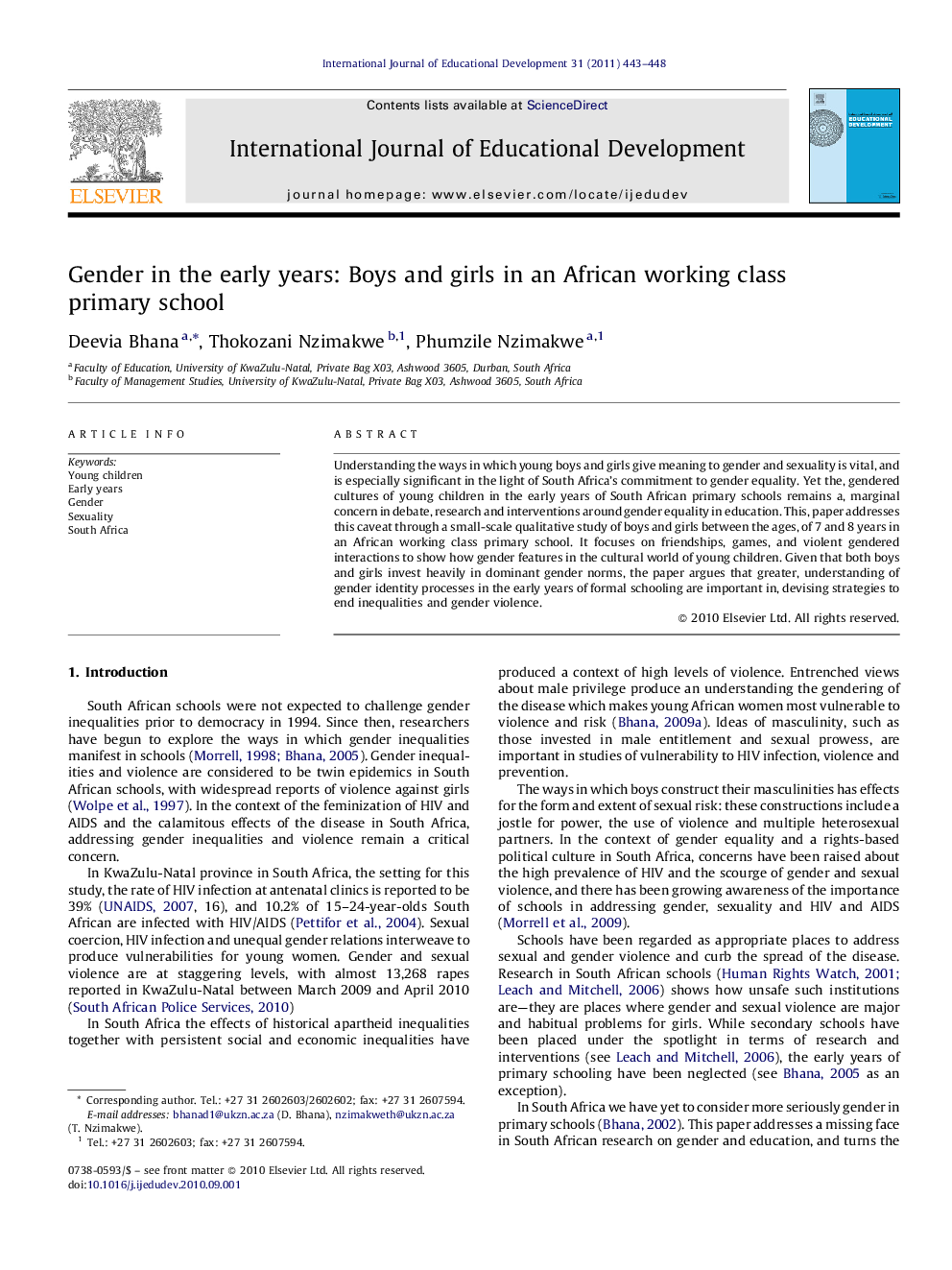| Article ID | Journal | Published Year | Pages | File Type |
|---|---|---|---|---|
| 356237 | International Journal of Educational Development | 2011 | 6 Pages |
Understanding the ways in which young boys and girls give meaning to gender and sexuality is vital, and is especially significant in the light of South Africa's commitment to gender equality. Yet the, gendered cultures of young children in the early years of South African primary schools remains a, marginal concern in debate, research and interventions around gender equality in education. This, paper addresses this caveat through a small-scale qualitative study of boys and girls between the ages, of 7 and 8 years in an African working class primary school. It focuses on friendships, games, and violent gendered interactions to show how gender features in the cultural world of young children. Given that both boys and girls invest heavily in dominant gender norms, the paper argues that greater, understanding of gender identity processes in the early years of formal schooling are important in, devising strategies to end inequalities and gender violence.
Research highlights▶ Young African children between the age of 7 and 8 are active gendered agents. ▶ Experiences of schooling in the areas of friendship, games and violence show how gender is constructed with negative effects for young African girls. ▶ By the age of 7 and 8 young boys are already inserting into masculine conduct premised upon privilege and power while girls are subordinated. ▶ In the context of gender and sexual violence and the scourge of AIDS in KwaZulu-Natal, South Africa, greater attention to gender transformative interventions in the early years of schooling is required.
